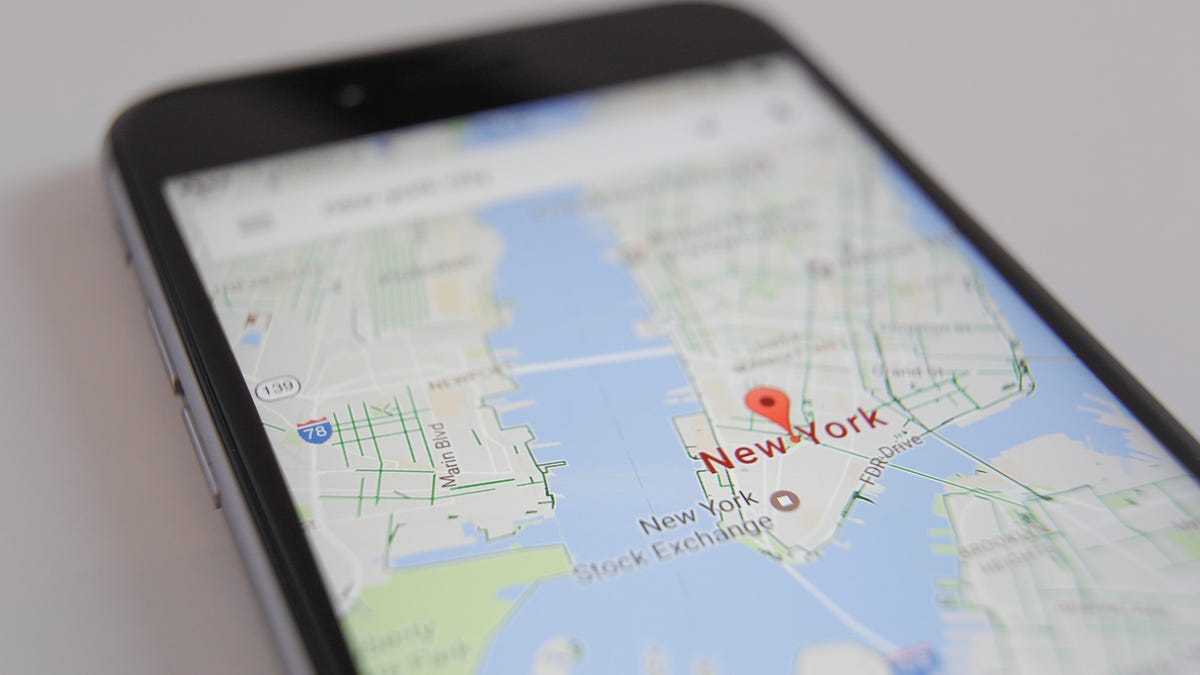Google is probably tracking your location, even if you turn it off, says report
While your location history is paused, some services still store your location data.

To find out if you're tracked by Google, you can go to your Google Maps Timeline.
Going off the grid with Google is harder than you might expect.
Google services on Android devices and iPhones track and store your location data even if you turn location history off in your privacy settings, according to an Associated Press investigation.
You can turn off location history any time, but some Google apps still store your time-stamped location data, the AP reported. Google also reportedly uses this location data to target ads based on users' specific locations.
Turning off location history just appears to remove your location from the Google Maps Timeline feature, which shows you where you've been in Google's data.
You can turn off web and app activity tracking, which is enabled by default, and delete your location data in your Google account at myactivity.google.com. However, as the AP notes, this may affect how some services work, such as ride-hailing apps.
To find out if you're tracked by Google, you can go to your Google Maps Timeline, and from there you can check your phone's location settings and make adjustments.
Tech giants have been under fire for scandals related to data privacy, and the issue has caused some concern in Congress. The House Committee on Energy and Commerce last month sent a pair of letters to Apple and Alphabet, Google's parent company, inquiring how the companies protect users' privacy. Apple has responded with detailed answers to each question; Alphabet hasn't.
"Location History is a Google product that is entirely opt in, and users have the controls to edit, delete, or turn it off at any time," a Google spokesperson said in a statement. "As the story notes, we make sure Location History users know that when they disable the product, we continue to use location to improve the Google experience when they do things like perform a Google search or use Google for driving directions."
In another statement to the AP, a spokesperson for the search giant said: "There are a number of different ways that Google may use location to improve people's experience, including: Location History, Web and App Activity, and through device-level Location Services. We provide clear descriptions of these tools, and robust controls so people can turn them on or off, and delete their histories at any time."
A larger problem
Still, the backlash over Google's location history underscores how much scrutiny tech giants are under for their data-hungry business practices. Facebook received intense criticism over its Cambridge Analytica scandal, in which 87 million Facebook users had their personal information co-opted by a UK-based digital consultancy with ties to Donald Trump's US presidential campaign.
In the wake of that controversy, many consumers have faced a wake-up call: When it comes to ceding their data to tech companies, they may not have quite known what they were signing up for.
Google came under fire last month when it was reported that employees of third-party app developers could read your inbox. At the time, Google said the practices were covered by the company's terms of service.
But it gets even trickier when Google lays out its data tracking policies for consumers in confusing ways, as it does with its location history practices.
"Google is saying, with a straight face, that it's perfectly clear that disabling the feature named 'Location History' does not prevent Google from tracking your location history," John Gruber, a noted Apple commentator, wrote on Monday. "There's nothing surprising about this, but that doesn't mean it isn't shameful."
First published Aug. 13, 6:36 a.m. PT.
Update, 1:05 p.m. PT: Adds more context.
CNET Magazine: Check out a sample of the stories in CNET's newsstand edition.
Tech Enabled: CNET chronicles tech's role in providing new kinds of accessibility.



